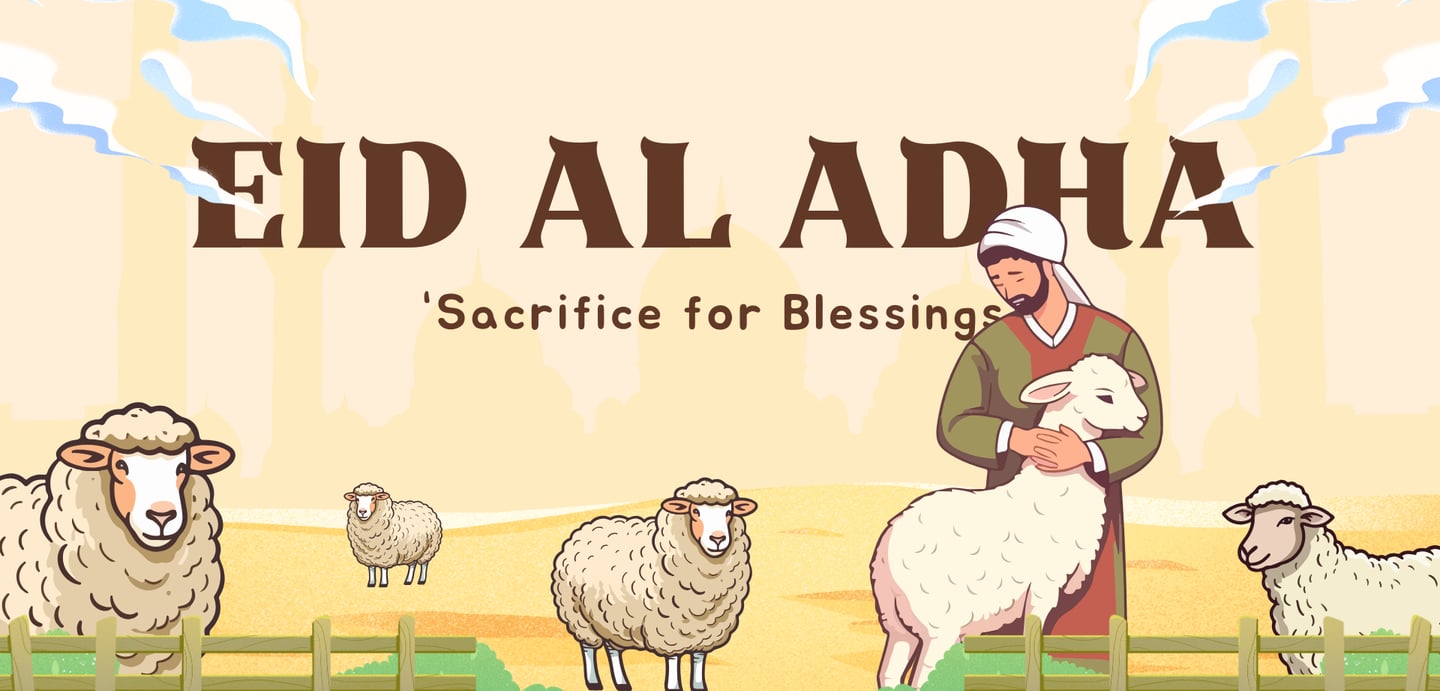
Introduction:
Eid-ul-Adha, also known as the Festival of Sacrifice, is a significant Islamic celebration observed by Muslims around the world. Rooted in the story of Prophet Ibrahim's unwavering devotion to God, this joyous occasion holds deep spiritual and cultural significance. As families and communities come together to commemorate the spirit of sacrifice and compassion, Eid-ul-Adha becomes a symbol of unity, gratitude, and empathy.
The Story of Sacrifice:
At the heart of Eid-ul-Adha lies the compelling narrative of Prophet Ibrahim's willingness to sacrifice his son as an act of obedience to God. However, before the sacrifice could take place, God intervened, providing a ram as a substitute. This profound tale serves as a reminder of the importance of devotion, faith, and the willingness to make personal sacrifices for the greater good.
Acts of Sacrifice and Giving:
Eid-ul-Adha is marked by the ritual sacrifice of an animal, typically a goat, sheep, or cow, symbolizing Prophet Ibrahim's act of devotion. The meat from the sacrifice is then distributed among family, friends, and those in need. This act of sharing reflects the Islamic values of compassion and generosity, emphasizing the importance of providing for others, especially those less fortunate.
Community and Family Bonding:
The festive atmosphere of Eid-ul-Adha is palpable as families come together for prayers, feasts, and celebrations. Muslims gather at mosques to offer special prayers, seeking blessings and expressing gratitude for the bounties bestowed upon them. After the prayers, families engage in the symbolic act of sacrifice, sharing the joyous occasion with loved ones.
Eid ul Adha - Festival of Sacrifice
Delicious Eid Feasts:
Eid-ul-Adha is synonymous with sumptuous feasts that feature an array of delectable dishes. The sacrificial meat becomes the centerpiece of these meals, prepared in various traditional and innovative recipes. From aromatic biryanis to savory kebabs and sweet treats, the Eid table reflects the diversity of Islamic culinary traditions, bringing families closer through the shared experience of breaking bread.
Acts of Charity and Compassion:
Eid-ul-Adha emphasizes the importance of reaching out to those in need. Muslims are encouraged to share the joy of the festival by giving to charity and providing for those who may not have the means to celebrate. This spirit of compassion and selflessness fosters a sense of community responsibility and reinforces the values of empathy and solidarity.
Global Observance:
Eid-ul-Adha is a truly global celebration, uniting Muslims across continents and cultures. Regardless of geographic location, the core principles of sacrifice, compassion, and unity remain the same. The diversity in the ways the festival is observed highlights the rich tapestry of Islamic traditions, making it a testament to the global Muslim community's resilience and shared identity.
Conclusion:
Eid-ul-Adha is more than just a religious celebration; it is a profound expression of faith, sacrifice, and compassion. As Muslims worldwide come together to commemorate Prophet Ibrahim's devotion and share the blessings of the festival, Eid-ul-Adha serves as a powerful reminder of the values that unite humanity. Through acts of sacrifice, generosity, and community bonding, Eid-ul-Adha transcends cultural boundaries, fostering a sense of shared purpose and solidarity that resonates far beyond the festivities


Address
Soan Garden, Islamabad
Pakistan
Contacts
WhatsApp: +92-321-9012647
Email: shafqat@foodandfestivals.com